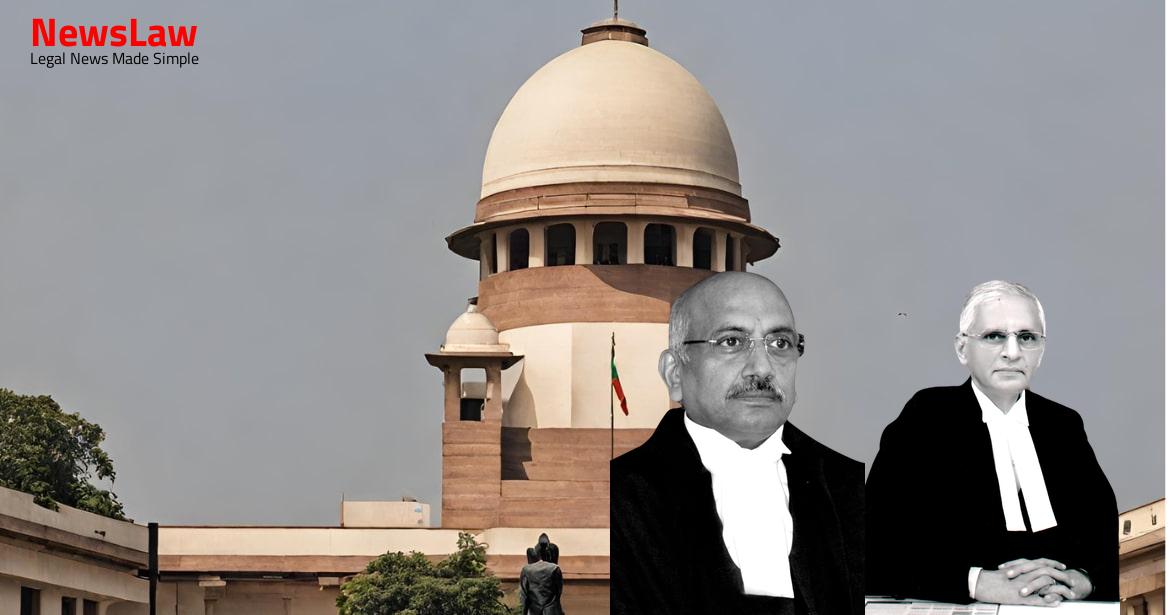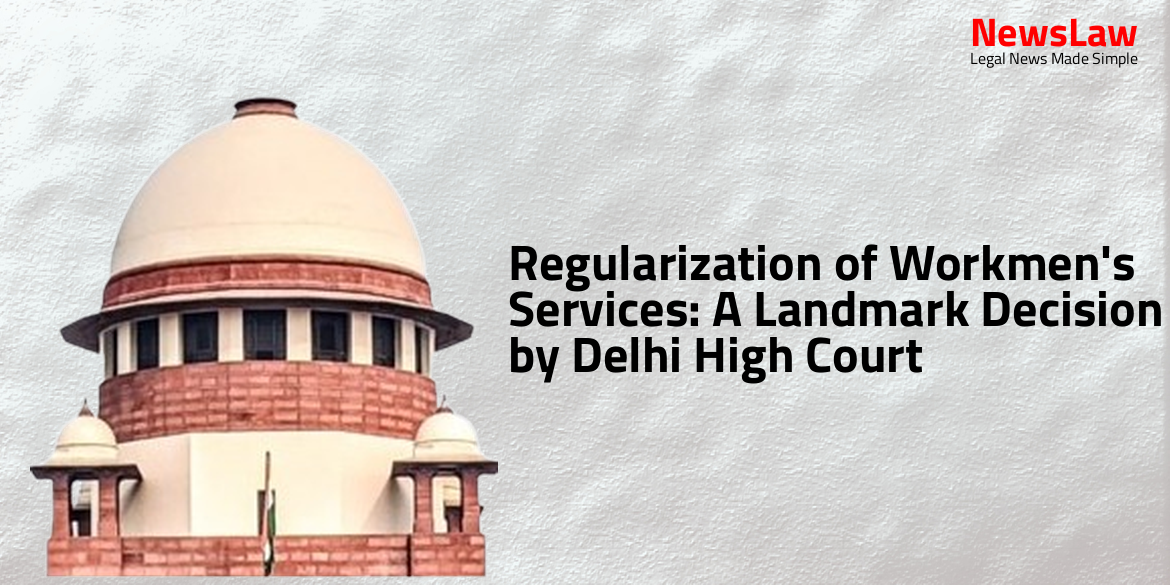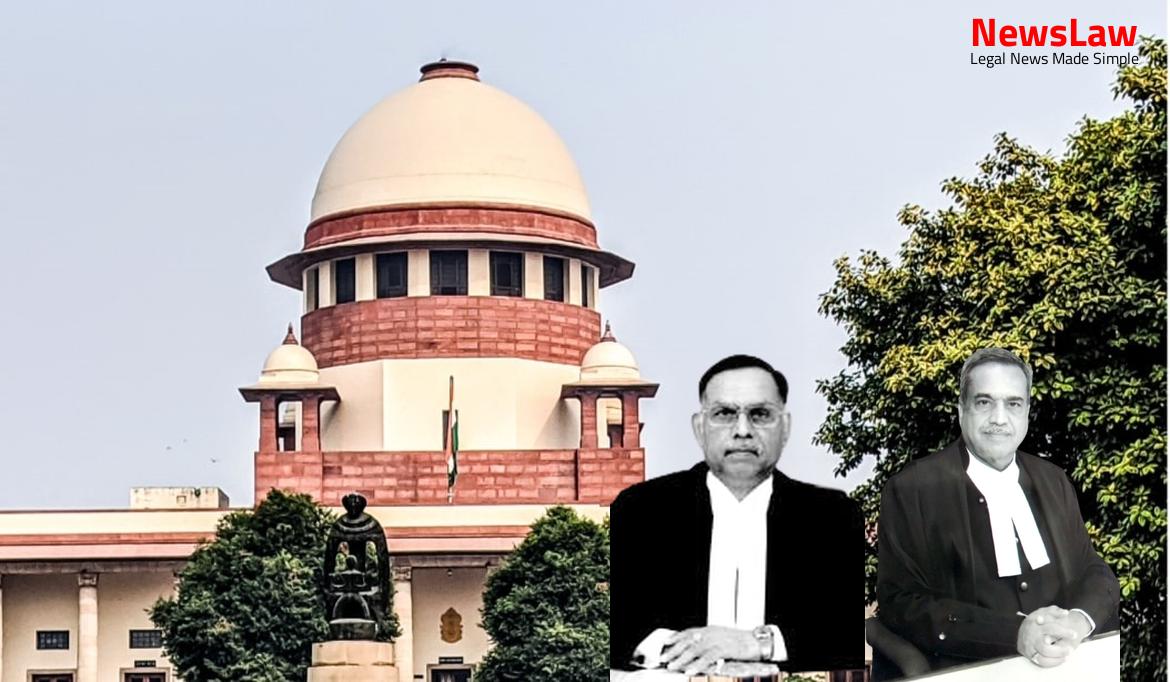In a recent legal case concerning the regularization of contractual employees, the High Court’s judgment focused on emphasizing the temporary nature of appointments and the absence of sanctioned posts in a regular government establishment. The court analyzed the applicability of past decisions and the actions taken by the State regarding the employees’ transfer. This blog delves deeper into the legal reasoning behind the court’s decision and its implications on similar cases of contractual employment disputes.
Facts
- Respondents were appointed on a contractual basis for 11 months on a fixed salary for the ‘Post-Earthquake Redevelopment Programme’ of the Government of Gujarat.
- Initially appointed in 2004 as drivers, they were not terminated but a decision was made to place them in the services of the Indian Red Cross Society.
- Despite working for the Government for 17 years, they were not transferred to the Indian Red Cross Society.
- Respondents approached the High Court for regularization and absorption in Government service instead of joining the Indian Red Cross Society.
- The Division Bench directed the State/Department to consider their cases for absorption and regularization sympathetically, even creating supernumerary posts if needed.
- The learned Single Judge dismissed the writ petition stating that the original petitioners were appointed on a fixed salary for only eleven months, which was extended from time to time.
- The petitioners were appointed in a ‘Project Implementation Unit’ for earthquake rehabilitation purposes and did not hold permanent posts in any government establishment.
- The State appealed against the High Court Division Bench’s decision.
- The respondents, original petitioners, filed an LPA before the Division Bench after the Single Judge dismissed their writ petition.
- The respondents were transferred due to administrative exigencies and continued in service following an interim relief order by the Division Bench in 2011.
- During the 2021 LPA hearing, the respondents, having worked for seventeen years, requested to be absorbed by the State and have their services regularized.
Also Read: Ruling on Circumstantial Evidence in Murder Case
Arguments
- The State argues that the High Court directed them to consider absorption/regularization of the respondents mistakenly.
- The respondents were continued in service under an interim order from the High Court, therefore they have no right to claim absorption/regularization.
- The counsel for the State of Gujarat emphasizes that the respondents were initially appointed for a fixed period in a temporary project after the earthquake for rehabilitation purposes, not in any regular establishment.
- Learned counsel for the respondents heavily relied on the decision of the court in State of Karnataka v. Umadevi (3) and Narendra Kumar Tiwari v. State of Jharkhand.
- Respondents have worked as drivers with the State Government for more than seventeen years.
- Division Bench of the High Court directed the State to consider their cases for absorption/regularisation sympathetically.
- If required, supernumerary posts can be created for their absorption.
- It is argued that the respondents, having worked for seventeen years, should be absorbed and their services regularised.
Also Read: Challenging Legal Presumptions in Negotiable Instrument Cases
Analysis
- The High Court’s order was without jurisdiction.
- The decisions in the cases of Umadevi and Narendra Kumar Tiwari are not applicable to the current case.
- The purpose of the Umadevi decision was to prevent irregular appointments and benefit those irregularly appointed in the past.
- The respondents were appointed in a temporary unit created for a specific project.
- The respondents were not appointed on sanctioned posts of a regular government establishment.
- The High Court directed consideration for absorption/regularization without considering the temporary nature of the unit or the respondents’ initial fixed-term appointments.
- The respondents were continued in service for a long time due to an interim order of the High Court.
- The direction to create supernumerary posts for absorption/regularization is unsustainable.
- State was not duty-bound to transfer employees appointed on temporary basis to another establishment upon closure of temporary unit
- State offered to place employees in Indian Red Cross Society, which they did not accept
- High Court’s direction on absorption and regularization not to be treated as precedent was unwarranted as there were no peculiar circumstances justifying it
- High Court exceeded its powers under Article 226 by passing such a direction
- Impugned judgment and order of High Court quashed and set aside
Also Read: Legal Analysis Critique in High Court’s Quashing Order
Decision
- Present appeal allowed
- Judgement restored
- No costs to be paid
Case Title: THE STATE OF GUJARAT Vs. R.J. PATHAN (2022 INSC 342)
Case Number: C.A. No.-001951-001951 / 2022



